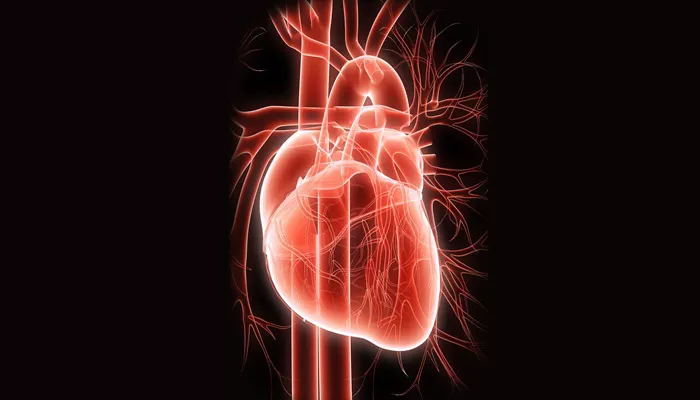Heart arrhythmia, a condition where the heart beats irregularly—too fast, too slow, or in an irregular pattern—can have significant impacts beyond the cardiovascular system. While the primary concern is often the heart’s ability to pump blood effectively, the ramifications of arrhythmia extend to various other body systems. This article will explore the intricate connections between heart arrhythmia and other physiological systems, highlighting the profound effects this condition can have on overall health.
What Is Heart Arrhythmia?
Heart arrhythmias can be categorized based on their origin within the heart and the nature of the irregularity. Common types include atrial fibrillation (AFib), ventricular tachycardia, and bradycardia. These irregular heartbeats can disrupt the normal flow of blood, leading to a cascade of effects on the body’s organs and tissues.
1. Cardiovascular System
The cardiovascular system is the most directly affected by heart arrhythmias. The irregular rhythm can cause the heart to pump inefficiently, leading to reduced cardiac output. This reduction in the heart’s efficiency can result in various symptoms and complications, including:
Congestive Heart Failure: Arrhythmias can exacerbate or lead to heart failure by weakening the heart muscle and diminishing its ability to supply adequate blood to the body.
Blood Clots: Conditions like AFib can cause blood to pool in the heart, increasing the risk of clot formation. These clots can travel to other parts of the body, causing potentially life-threatening conditions like stroke.
Ischemic Events: Reduced blood flow can lead to ischemic events, where organs and tissues are deprived of oxygen, resulting in damage or dysfunction.
see also: When Was Arrhythmia Discovered?
2. Nervous System
The nervous system plays a crucial role in regulating heart rhythm through the autonomic nervous system (ANS), which comprises the sympathetic and parasympathetic nervous systems. Heart arrhythmias can disrupt the balance of this regulation, leading to:
Autonomic Dysfunction: Arrhythmias can affect the ANS, causing issues like syncope (fainting), which occurs when the heart fails to supply sufficient blood to the brain.
Stroke: As mentioned, arrhythmias like AFib increase the risk of stroke due to blood clots. A stroke can have devastating effects on the nervous system, leading to paralysis, cognitive deficits, and other neurological impairments.
3. Respiratory System
The respiratory system relies on the heart to provide a steady supply of oxygen-rich blood. Heart arrhythmias can compromise this exchange, leading to:
Pulmonary Edema: Arrhythmias can cause fluid to accumulate in the lungs, a condition known as pulmonary edema. This can lead to shortness of breath, difficulty breathing, and a decrease in oxygen exchange.
Hypoxia: Inefficient blood circulation can result in reduced oxygen delivery to tissues, causing hypoxia. Chronic hypoxia can damage vital organs and impair their function.
4. Renal System
The kidneys are highly dependent on adequate blood flow to filter waste and maintain electrolyte balance. Heart arrhythmias can impair renal function by:
Reduced Perfusion: Ineffective heart pumping can decrease renal perfusion, leading to acute kidney injury or chronic kidney disease.
Electrolyte Imbalance: The kidneys regulate electrolytes, and arrhythmias can cause imbalances in sodium, potassium, and calcium levels, further exacerbating heart rhythm issues.
5. Digestive System
The digestive system can also be affected by heart arrhythmias, albeit indirectly. Poor circulation can impact the digestive organs, leading to:
Malabsorption: Reduced blood flow to the intestines can impair nutrient absorption, leading to deficiencies and malnutrition.
Ischemic Bowel Disease: Severe cases of arrhythmia-related circulatory issues can cause ischemic bowel disease, where parts of the intestines do not receive enough blood, leading to tissue damage and necrosis.
6. Musculoskeletal System
The musculoskeletal system, comprising muscles and bones, can experience secondary effects from heart arrhythmias due to decreased oxygenation and blood flow:
Muscle Weakness and Fatigue: Inadequate blood supply can lead to muscle fatigue and weakness, affecting physical performance and endurance.
Bone Health: Chronic conditions like heart failure associated with arrhythmias can lead to reduced physical activity and bone density, increasing the risk of osteoporosis and fractures.
7. Endocrine System
The endocrine system, responsible for hormone regulation, can also be influenced by heart arrhythmias:
Stress Hormones: Arrhythmias can trigger the release of stress hormones like adrenaline and cortisol, which can exacerbate heart conditions and create a feedback loop that worsens arrhythmias.
Thyroid Function: Thyroid hormones have a direct impact on heart rate and rhythm. Arrhythmias can disrupt thyroid function, and conversely, thyroid disorders can precipitate arrhythmias.
8. Immune System
The immune system can be indirectly affected by heart arrhythmias through the systemic effects of poor circulation and chronic inflammation:
Chronic Inflammation: Persistent arrhythmias can cause chronic inflammation, which may weaken the immune response and increase susceptibility to infections.
Autoimmune Responses: In some cases, arrhythmias can trigger autoimmune responses, where the body’s immune system attacks its own tissues, potentially leading to further complications.
Management And Treatment
Managing heart arrhythmias and their systemic effects involves a comprehensive approach, including lifestyle modifications, medication, and in some cases, surgical interventions:
Lifestyle Changes: Adopting a heart-healthy lifestyle, including regular exercise, a balanced diet, and avoiding tobacco and excessive alcohol, can help manage arrhythmias.
Medications: Antiarrhythmic drugs, blood thinners, and medications to control heart rate and blood pressure are commonly prescribed to manage symptoms and reduce the risk of complications.
Procedures: In more severe cases, procedures like catheter ablation, pacemaker implantation, or surgery may be necessary to correct the underlying arrhythmia.
Conclusion
Heart arrhythmias have far-reaching effects that extend beyond the cardiovascular system, impacting various other body systems. Understanding these connections is crucial for comprehensive management and treatment, aimed at improving overall health and quality of life for individuals affected by this condition. By addressing both the direct and indirect consequences of arrhythmias, healthcare providers can better support patients in maintaining their well-being and preventing complications.

